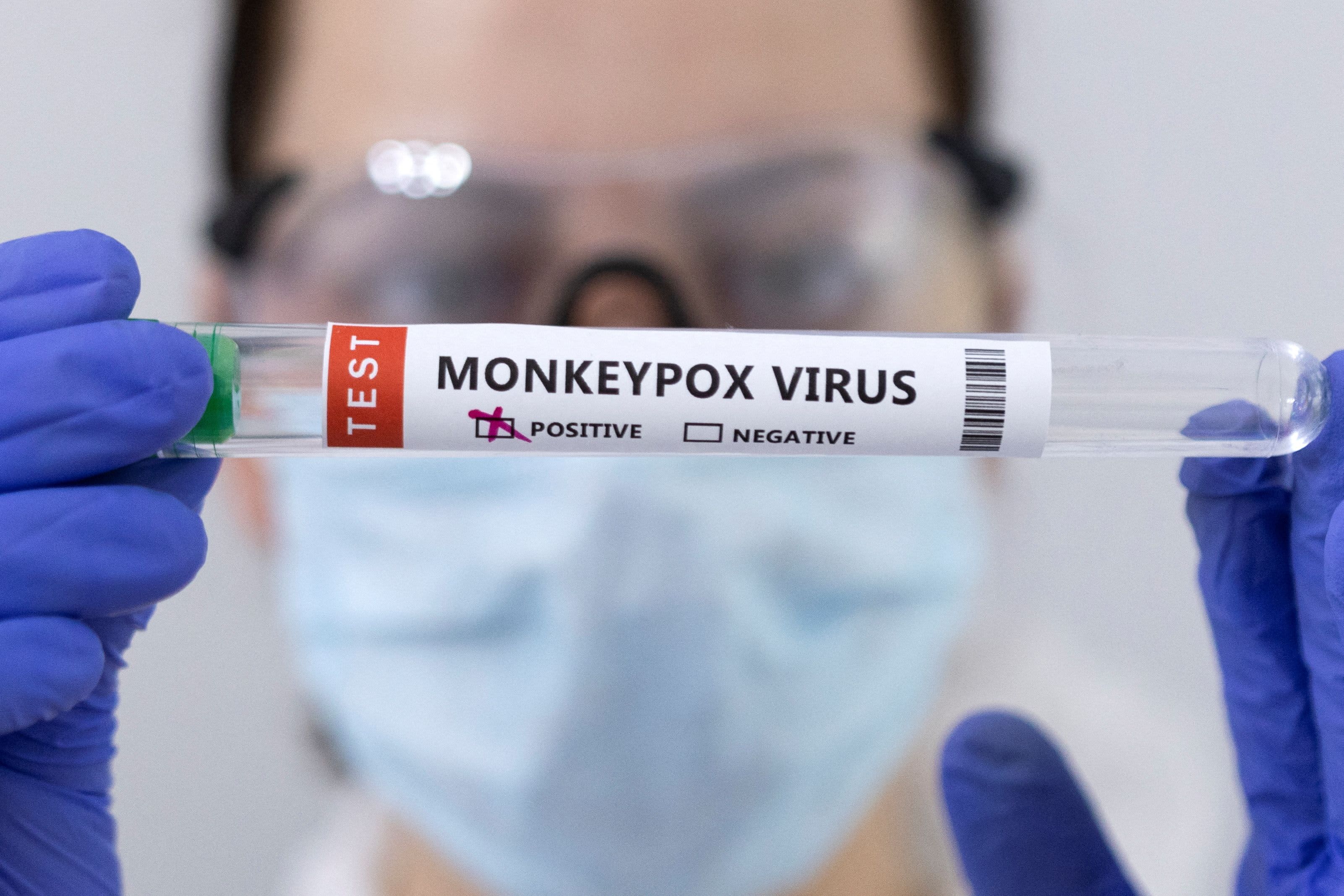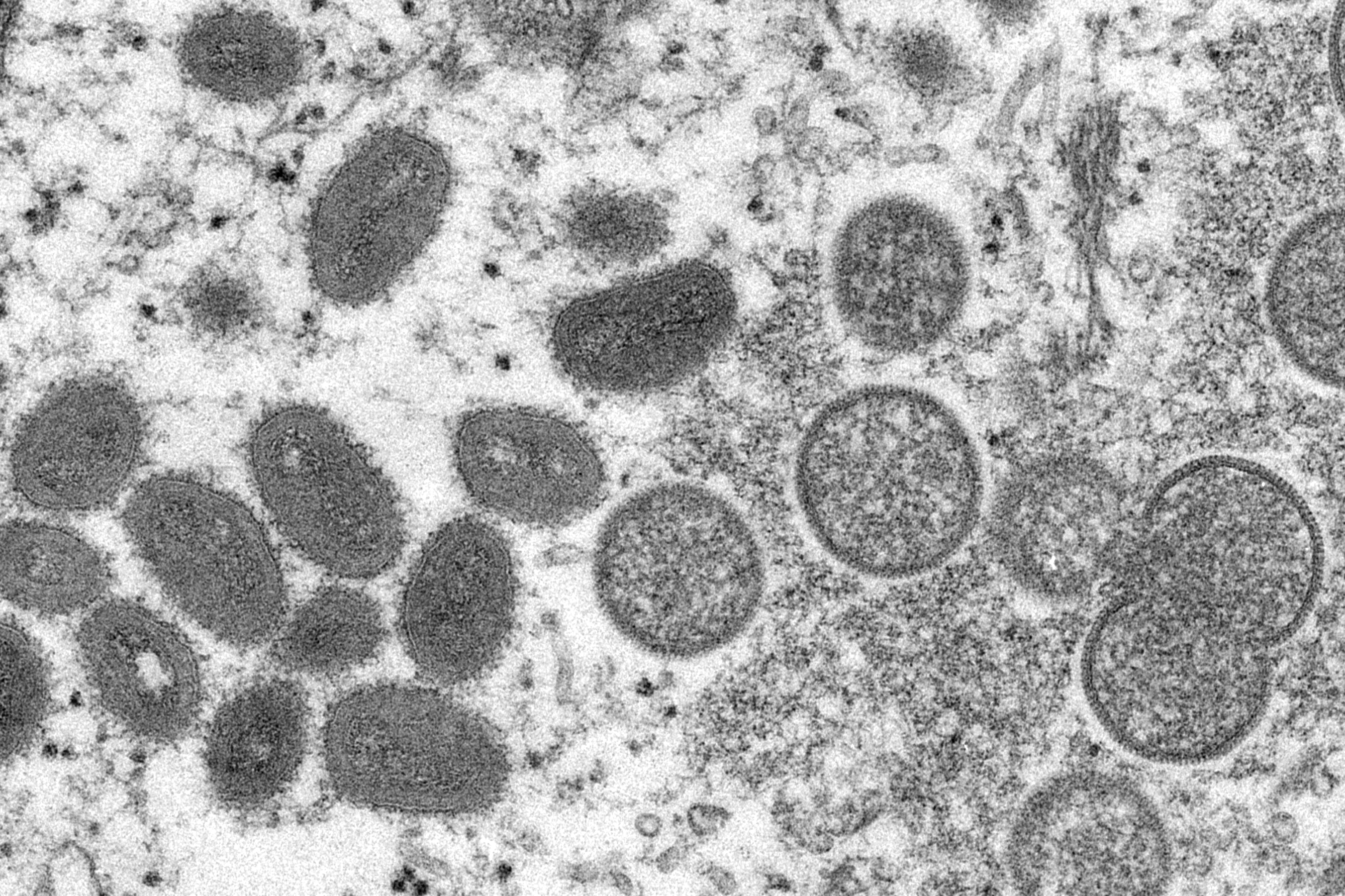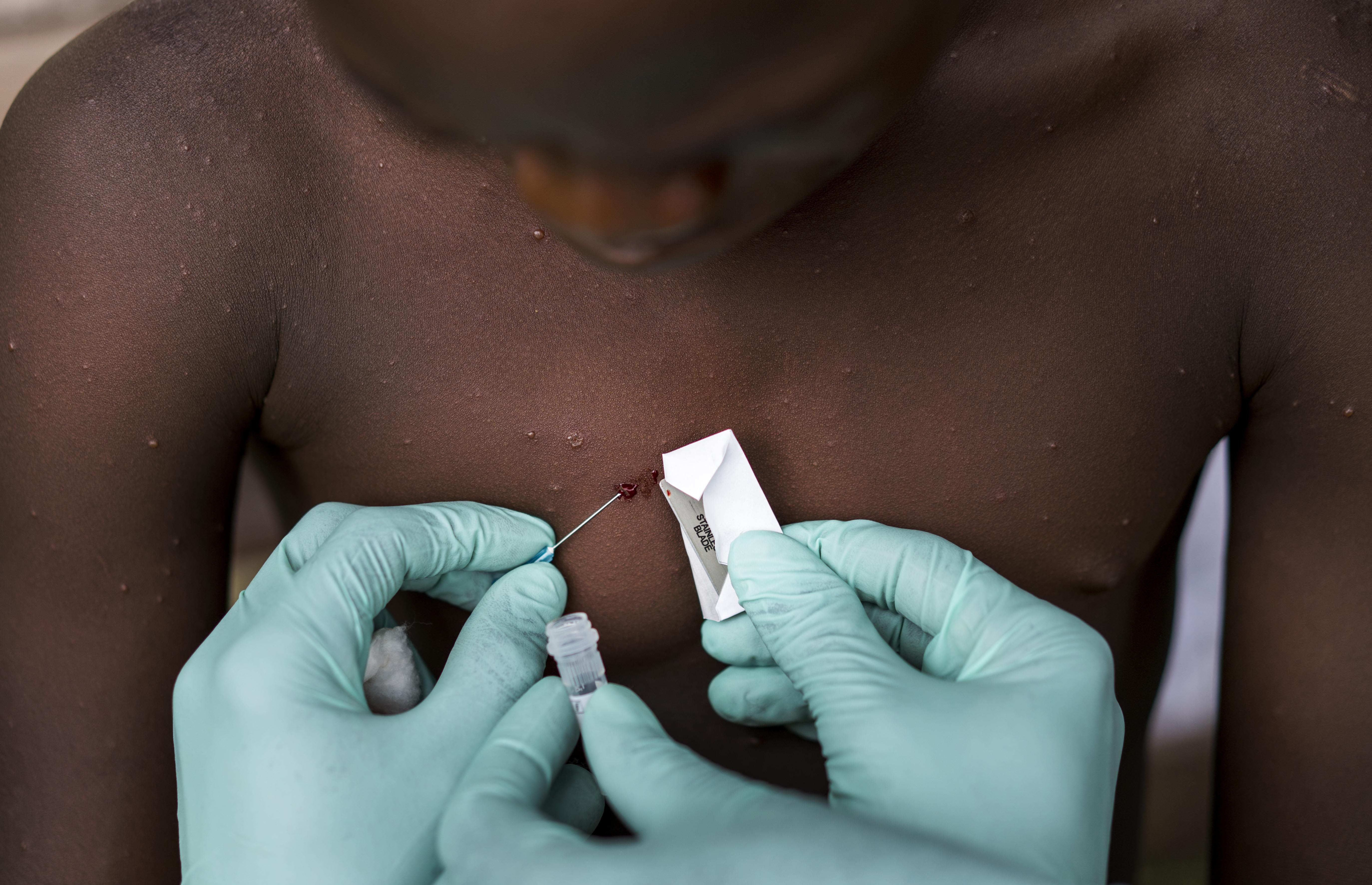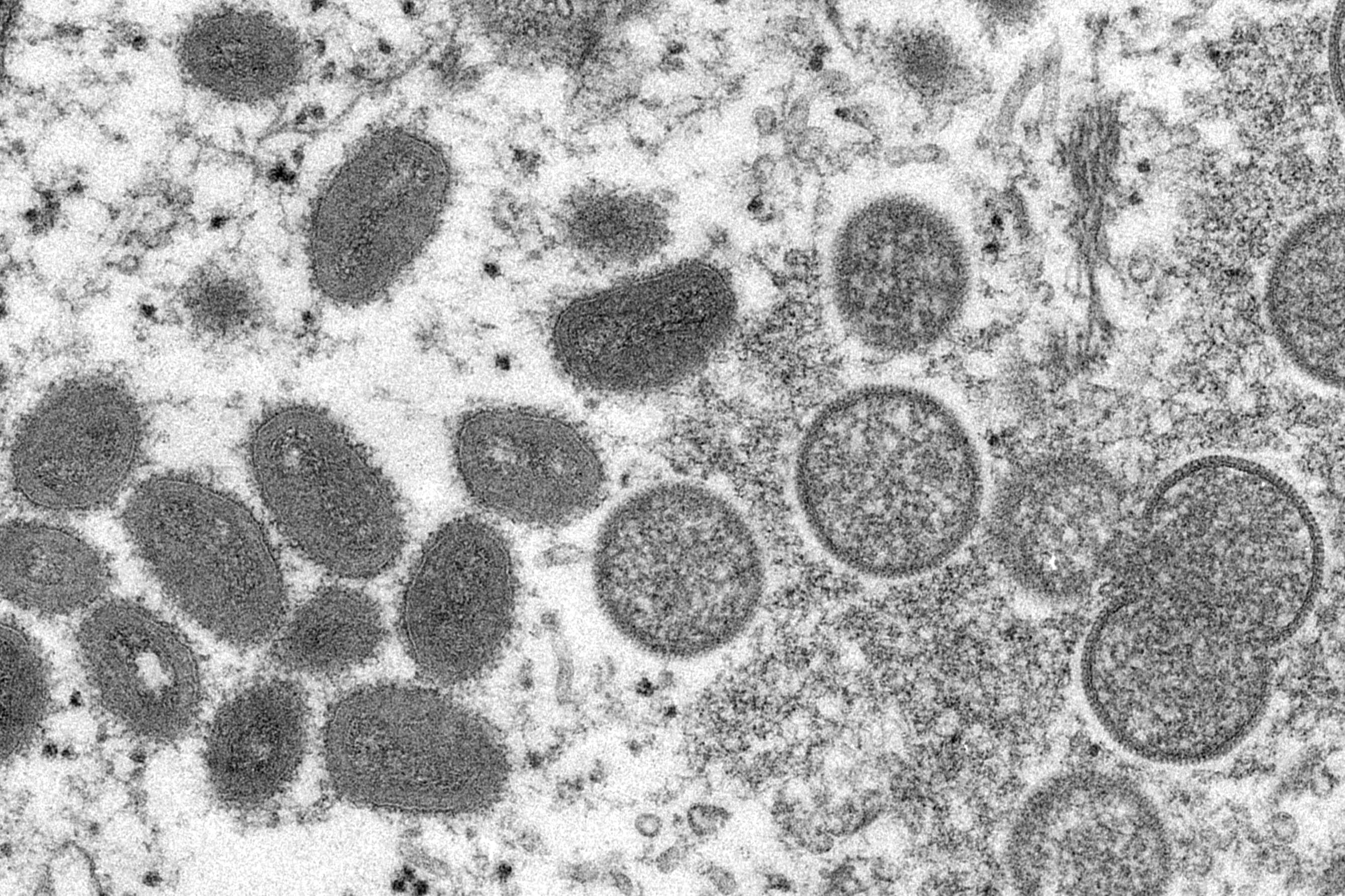The second presumptive case of monkeypox in Los Angeles County was reported Wednesday by the county's health department a week after the first case was reported.
The adult patient was asymptomatic and isolating, the department said. The patient has history of recent travel.
The first patient was identified as an adult LA County resident who recently traveled and had a known close contact to a monkeypox case. The patient was symptomatic, but doing well and not hospitalized, the county health department said.
Get Southern California news, weather forecasts and entertainment stories to your inbox. Sign up for NBC LA newsletters.
"Public Health is continuing to investigate and conduct contact tracing and post-exposure prevention for close contacts," the health department said, adding that the risk of monkeypox in the general population remains very low.
Concerns over monkeybox were elevated in May because of cases that have popped up in unusual locations, such as the United Kingdom, Spain and Portugal. Monkeypox is usually found in parts of Africa. Cases in Europe and the U.S. are rare.
"The current monkeypox situation is constantly evolving and subject to change," the California Department of Public Health said after a case was reported in Sacramento last month. "CDPH is closely monitoring monkeypox transmission in the U.S. and California to ensure rapid identification of cases. The risk of monkeypox to the public is currently very low based on the information available."
Here's what to know about the disease rarely seen outside Africa.
What is monkeypox?
Monkeypox is a virus that originates in wild animals like rodents and primates, and occasionally jumps to people. Most human cases have been in central and west Africa, where the disease is endemic.
The illness was first identified by scientists in 1958 when there were two outbreaks of a “pox-like” disease in research monkeys — thus the name monkeypox. The first known human infection was in 1970, in a 9-year-old boy in a remote part of Congo.
What are monkeypox symptoms?
Monkeypox belongs to the same virus family as smallpox but causes milder symptoms.
Most patients only experience fever, body aches, chills and fatigue. People with more serious illness may develop a rash and lesions on the face and hands that can spread to other parts of the body.
The incubation period is from about five days to three weeks. Most people recover within about two to four weeks without needing to be hospitalized.
Monkeypox can be fatal for up to one in 10 people and is thought to be more severe in children.
People exposed to the virus are often given one of several smallpox vaccines, which have been shown to be effective against monkeypox. Anti-viral drugs are also being developed.
On Thursday, the European Centre for Disease Prevention and Control recommended all suspected cases be isolated and that high-risk contacts be offered the smallpox vaccine.
How many monkeypox cases are typical?
The World Health Organization estimates there are thousands of monkeypox infections in about a dozen African countries every year. Most are in Congo, which reports about 6,000 cases annually, and Nigeria, with about 3,000 cases a year.
Patchy health monitoring systems mean many infected people are likely missed, experts say.
Isolated cases of monkeypox are occasionally spotted outside Africa, including in the U.S. and Britain. The cases are typically associated with travel to Africa or contact with animals from areas where the disease is more common.
In 2003, 47 people in six U.S. states had confirmed or probable cases. They caught the virus from pet prairie dogs that been housed near imported small mammals from Ghana.
What's different about these monkeypox cases?
It's the first time monkeypox appears to be spreading among people who didn't travel to Africa. Most of the cases involve men who have had sex with men.
In Europe, infections have been reported in Britain, Italy, Portugal, Spain and Sweden.
Britain's Health Security Agency said its cases are not all connected, suggesting that there are multiple chains of transmission happening. The infections in Portugal were picked up at a sexual health clinic, where the men sought help for lesions on their genitals.
On Wednesday, U.S. officials reported a case of monkeypox in a man who had recently traveled to Canada, where authorities are investigating suspected infections in the Montreal area.
How can we prevent the spread of monkeypox?
Los Angeles County health officials are asking people to be aware of the symptoms -- and that monkeypox can spread through "sexual networks."
"As such, and until we learn more, the Los Angeles County Department of Public Health urges you to be vigilant," the health department said. "People who have symptoms of monkeypox, particularly the characteristic rash or lesions, should take the following steps."
- Visit a medical provider for an evaluation
- Cover the area of the rash with clothing
- Wear a mask
- Avoid skin-to-skin, or close contact with others
The CDC urges those steps especially for pepole who recently traveled to an area where monkeypox cases have been reported.





